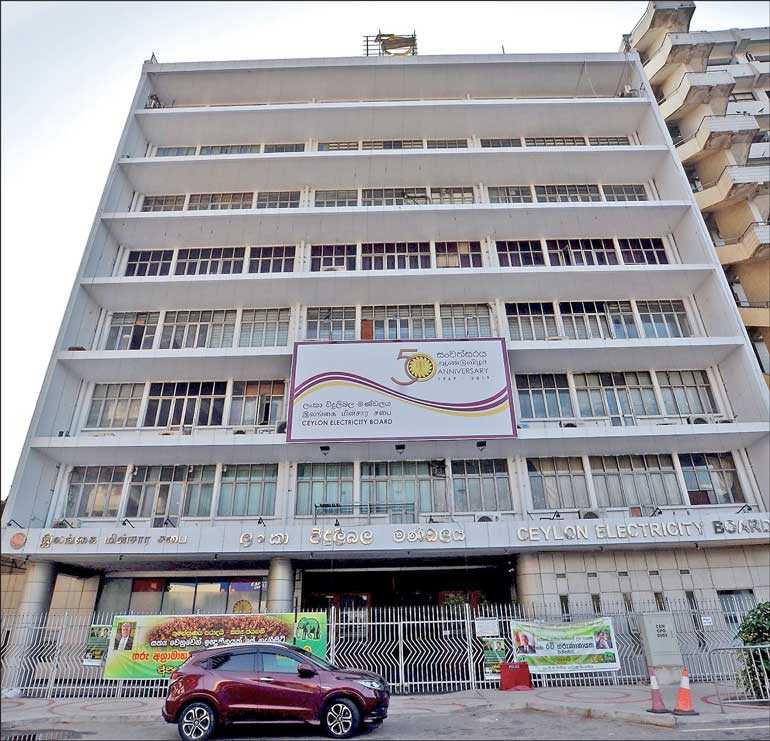Friday Feb 13, 2026
Friday Feb 13, 2026
Friday, 21 August 2020 00:00 - - {{hitsCtrl.values.hits}}

If the problem could be identified before the very evening was over, was it beyond the capacity of the Electricity Board to have anticipated its occurrence? If anticipated, could this massive loss have been avoided? – Pic by Shehan Gunasekara
One wonders what the response of a Japanese oligarch would have been, had the organisation he leads failed to prevent a country-wide power failure that went on for nearly half a day, turning the lives of 22 million people into a sweltering  misery, wiping out millions of rupees from an economy already reeling from the effects of the COVID-19 virus and making a country aspiring for a resurgent status, a laughing stock.
misery, wiping out millions of rupees from an economy already reeling from the effects of the COVID-19 virus and making a country aspiring for a resurgent status, a laughing stock.
Electricity today is as important as the air we breathe; cut it off, and everything comes to an abrupt halt. Without electricity very little can be done; schools close, offices cannot function, factories stop production, hospitals cannot operate, denied the guidance of the traffic lights chaos descends on the roads; the country comes to a grinding halt.
The very evening of the blackout, the Chairman of the Ceylon Electricity Board went public, interpreting and also explaining the mishap that befell the country. He said hundreds of technical officers were working on the problem, even going without their lunch! Reference to that enormous sacrifice, set the tone of the defence. Technical terms were freely thrown in, ‘high voltage network’, ‘national grid’, ‘power outage’, words offering little relief to the millions sweating in the unremitting heat.
Apparently, it is important to locate power stations at sites with long names; Norochcholai, Kerawalapitiya; placed before the impressive length of these names, a people’s ire recede into insignificance. A person’s temper may rise or fall; but Norochcholai, Kerawalapitiya has a permanency to its tone, both compelling as well as unmoving, the Chairman intoned these place names.
If the problem could be identified before the very evening was over, was it beyond the capacity of the Electricity Board to have anticipated its occurrence? If anticipated, could this massive loss have been avoided? As if one disaster justifies the second, an earlier power outage (2016?) was brought up defensively. These are only episodes one and two, the people must expect a whole series of breakdowns!
Power generation is easily the nation’s highest expenditure, every citizen carrying a proportionate burden of the import cost of the raw material. When the power is generated, the citizen also pays for the service, by way of his electricity bill. Despite the well-regulated work routine at the Electricity Board, including the set lunch hour, our power generation is not competitive, being one of the most expensive power suppliers in the region. Naturally, the country’s national cost of production is also uncompetitive.
It is unanimously accepted that our so called power sector is riddled with corruption. The old cocktail; shadowy operatives (to call them entrepreneurs, is to diminish the concept) representing foreign suppliers of coal, oil or turbines, corrupt our public officials, to make the foul-smelling concoction, leaving the country in a permanent state of a hangover. Neither these nation’s blood suckers nor the government officials selling their souls, can explain their assets and income, so gained. As usual, the law enforcement agencies, including the Inland Revenue Department are deaf and blind, too busy chasing the small businessmen in the village.
Nature has bestowed to us the sun, the rain and the wind, more than generously. We are told these are uneconomical assets, it is through the imported fuel and coal that we can see the ‘light’. These modes of power generation are easier to establish; there are several foreign companies eagerly targeting corruptible third world countries for their greedy schemes. There is money in them. They can turn public officials of the poor third world, to act against their own country. On the other hand, nature friendly, renewable energy sources are initially expensive, and their promoters by and large, are less sleazy.
To a man, from the primary stage to the university, sometimes even to the postgraduate level, the engineers at the Electricity Board are beneficiaries of our free education system. Thereafter, their working life has been in the public sector, a service not distinguished for its efficiency or economy. To make matters worse, the Electricity Board is a monopoly, a culture and training which gives the engineer an idea that he is of godly status; answerable to none.
Of course, the whole thing is a fantasy. What we have is a weak and corrupted structure, open to any and every trespass. If the Easter Day (2018) bombs shattered the pretence of peace, 17 August (2020) dented the claims of efficiency, ease of doing business and the reliability of services. The country reaffirmed its inabilities.
It is imperative that the State asserts its seriousness of purpose. A holder of high public office may rightly claim credit for the organisations’ achievements, however, he must also take the rap for its failings. It is very possible, that he is not directly responsible for the failing, but on account of the elevated responsibility he carries on behalf of the entire population, must answer for any lapses during his watch. Sadly, in Sri Lanka, success has many fathers, but failures are orphans.
The consequences of disasters such as the Easter Day bombings and the island-wide blackout are too grave to be restored by working without a lunch break. Somebody must accept responsibility. In Japan, if such an event were to happen, the person formally responsible would have fallen on the sword, at least, figuratively.
But then, Japan, is a serious country.